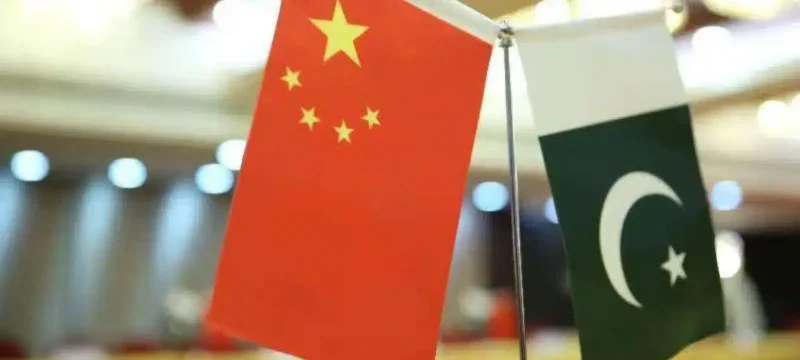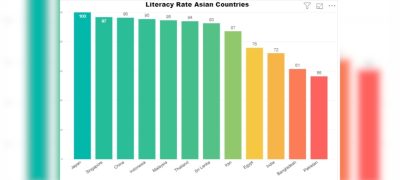KARACHI: Chinese Science Commissioner to Pakistan, Yin Shengxin, has voiced hope about the future of China-Pakistan science and technology (S&T) collaboration.
Yin underlined the possibilities for collaboration in domains such as artificial intelligence (AI), agriculture, information technology, and renewable energy in an exclusive interview with Radio Pakistan’s Technology FM Channel.
Yin stressed the substantial influence of AI integration in the Chinese corporate sector, which has played a critical role in propelling the Chinese economy from 228 billion Yuan to a staggering 23,000 billion Yuan over the last decade. He also discussed major Chinese scientific and technological achievements, such as the Chinese Space Mission, the Beidou Navigation System, and Chinese bullet train projects.
In response to a question about how both countries may gain from S&T cooperation, Yin emphasised the necessity of conducting cooperation based on the well-being of both nations’ peoples and adhering to the win-win principle.
Read more : Surprising Data Reveals Netflix Password Sharing Crackdown Yields Unexpected Results
He highlighted agriculture, renewable energy, biomedicine, and the environment, underlining their importance in the lives of Pakistanis. He claimed that successful collaboration would boost Pakistan’s S&T capabilities, raise living conditions, and benefit society.
Simultaneously, Chinese partners stand to benefit from this partnership by improving their technological capabilities, iterating products, and increasing technological applications.
Yin highlighted his vision for China-Pakistan S&T collaboration, underlining the two countries’ longtime friendship and all-weather strategic alliance as a firm foundation.
Yin expressed optimism in the huge potential for collaboration because both nations share shared demands and understanding in terms of technological growth. He emphasised the beneficial conditions and environment provided by projects like the Belt and Road Initiative, the China-Pakistan Economic Corridor (CPEC), and inter-governmental S&T cooperation platforms.
Yin also mentioned the growing number of Chinese research institutes, colleges, and corporations committed to S&T engagement with Pakistan, which he feels will lead to a hopeful future of collaboration.
Yin presented insights into the dynamic changes and advances made in China’s S&T developments. He emphasised considerable gains in the number of issued invention patents, high-tech industry revenue, and China’s ranking in the Global Innovation Index 2022. Yin ascribed these accomplishments to the Chinese government’s strong support and emphasis, which has unveiled initiatives and policies to encourage innovation-driven development and expand investment in research and development.
Yin addressed how China encouraged R&D in emerging industries such as AI, biotechnology, agriculture, and renewable energy. He emphasised the increasing demand for AI since 2010, which has resulted in concerted efforts in AI research by Chinese firms, universities, and organisations. China’s AI Development Regulation
Yin described the structures in place to encourage China-Pakistan S&T collaboration, such as the China-Pakistan Joint Committee on Science and Technology and the CPEC S&T Joint Working Group. He also emphasised the Belt and Road Initiative’s importance in increasing scientific and technical collaboration between the two countries through projects like S&T People-to-People Exchange, Joint Laboratory, Science Park Cooperation, and Technology Transfer.
Yin also toured several parts of Radio Pakistan Islamabad and praised the work of state media, further cementing China-Pakistan ties. With both countries committed to increasing scientific and technological cooperation, the future holds enormous promise for mutual benefit and growth in a variety of disciplines.









